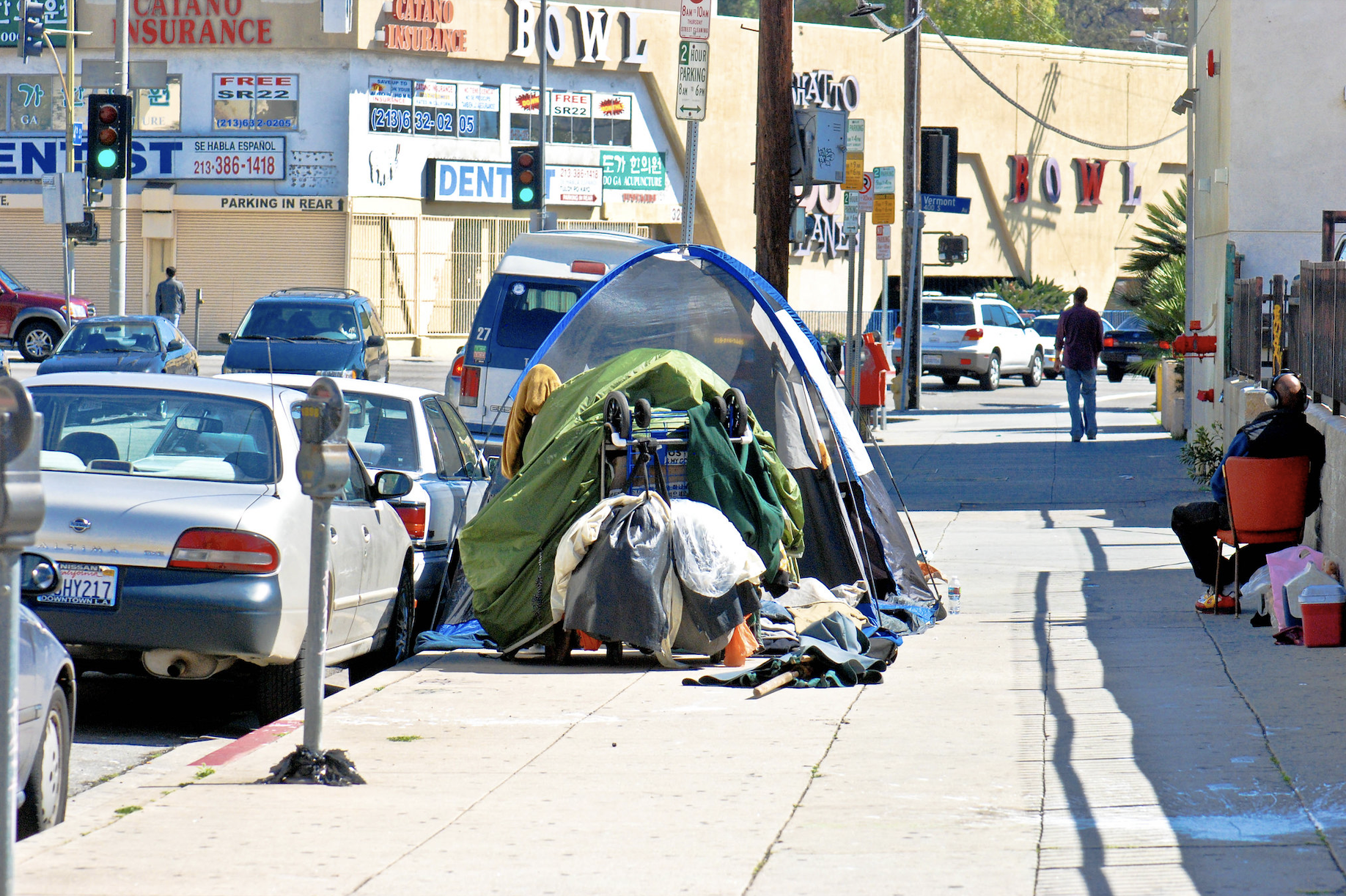
LOS ANGELES — Homelessness across the Los Angeles region may get better over the next year, and local governments should be willing to set aside certain regulations to tackle the crisis, according to a survey released today by the Thomas and Dorothy Leavey Center for the Study of Los Angeles at Loyola Marymount University.
The survey results show a slight uptick among Angelenos who anticipate the homelessness crisis will improve across the region — 25 percent said it would get a little better, moderately better, or much better, up from the 19 percent who said the same last year. But a majority — 53 percent — still predict the situation will get worse in 2023.
“We are seeing a ray of hope among survey respondents when discussing homelessness, which could be due to optimism around newly elected leaders and their promises to focus on this issue,” said Brianne Gilbert, managing director of the center. “There is still a lot of work to be done, but Angelenos are starting to lean into positive thinking about homelessness.”
As for the best tactics to lessen homelessness, respondents did not reach a clear consensus. When asked about building more rental properties in their neighborhood, 64 percent supported the idea. Another 81 percent backed stronger rent control laws to reduce the likelihood that skyrocketing rent increases could push renters into the streets.
But only 55 percent supported easing building regulations to allow for more construction, and 52 percent backed forgoing environmental regulations for that purpose. When asked whether to limit community input around the construction of homeless shelters or temporary housing, the survey found an even split. Raising taxes to pay for services or construction was overwhelmingly opposed.
“Everyone can see the housing shortage is a major cause of homelessness, but we don’t yet have enough people willing to change the factors that contributed to that situation,” said Fernando Guerra, director of the center and professor of Political Science and Chicana/o and Latina/o Studies. “The people we surveyed are tightly holding onto environmental regulations and local control of planning processes, which are positive in many ways, but also make it harder to tackle this crisis.”
The information is from StudyLA’s 10th annual general social survey of Los Angeles residents. It was conducted by phone, online, and in person, in English, Spanish, Mandarin and Korean, from Jan. 3 to Feb. 12. The survey reached 2,008 respondents and has a margin of error of +/- 3.0 percent.
The full report is available online here.



